-
DNA India | December, 10, 2017
Future of Health: While the road is bumpy, experts believe people will live older and feel younger
Read More -
The Indian Express | December, 09, 2017
Biggest inequality is identity-based: Kanhaiya Kumar : Media News from 9th Sankalp Global Summit
Read More -
SME Degest | February, 18, 2016
Entrepreneurs summit set to attract 800 global leaders to Nairobi
Read More -
Aptantech | February, 18, 2016
Sankalp Africa Summit 2016 set for Nairobi, with the theme- ‘Innovations for the Next 3 Billion’
Read More -
Kedai Mikro | December, 09, 2015
Kedai Mikro interviews Rizki post Sankalp Southeast Asia Summit
Read More -
Forbes Indonesia | December, 09, 2015
Forbes interviews Vineet on the sidelines of Sankalp Southeast Asia Summit
Read More -
industri.bisnis.com | December, 03, 2015
5 UKM Indonesia Bakal Ikuti Sankalp Global Summit di India
Read More

Future of Health: While the road is bumpy, experts believe people will live older and feel younger
In this day and age, humans have a quality of life that previous generations will only envy. We are spoilt for choice when it comes to healthcare and food. However, with the good, there comes the bad and this period can also be called some of the worst that we have seen in centuries. To highlight the condition, Oxfam last year highlighted that 62 people own as much wealth as 3.6 billion of the world’s poorest people.
Healthcare has been the biggest challenge. With the refugee crisis plaguing various pockets of the world, and developing countries such as India still working towards tackling diseases such as tuberculosis, HIV, encephalitis, malaria, and dengue, just to name a few, we’re still in a phase where we’re still trying to reach that point from where we can steadily advance.
The Sankalp Global Summit 2017 that was held in Mumbai last week saw 800 thought-leaders come together to address some of the biggest challenges humankind faces. One of these topics was the future of health, although they also looked at the future of food, and future of work.
The future of health brings a number of challenges, since the Government of India is currently aggressively working to eradicate tuberculosis by 2025. And while India has become a nation for medical tourism, the road ahead has a lot of hurdles. “The good thing is that if you manage to fix your own problems, they are very applicable to other developing countries and to the developed world as well. We should always play to our strengths. It is good to think about the global issues but act on your own problems first,” said Dr Aniruddha Malpani, Director and Founder Malpani Ventures, who was one of the speakers at the summit.
Another problem faced by not just India, but the world is affordable healthcare for all. People in the United States have raised concerns over US President Donald Trump’s health insurance policy replacing previous president Barack Obama’s policy that many believe reached out to the poorer sections of society.
In India, too, while medical services are subsidized in government and municipal-run hospitals, complex surgeries are still expensive. “A lot of it depends on what your actual definition of healthcare is. If you think that healthcare means doing bypass surgery for everyone then that’s definitely not going to happen. There lies a huge gap, a doctor’s definition of healthcare is perhaps very different from an oddly layman person. A doctor’s definition comprises all about illness care but if you ask are there going to be enough CT scanners or hospitals and that’s your perspective for affordable healthcare for all, then the answer is going to be no. But I think that’s a flawed dimension and I feel that if we use a sensible matrix, then the answer is going to be yes. I feel that unless we have a healthy population, we will never be able to reap our demographic dividend. Hence, it makes a lot of business sense to make sure that young kids remain educated and healthy,” Dr Malpani added.
Another problem faced by both doctors and patients is the insignificant doctor-patient ratio in India. In the Lok Sabha this year, Union Minster Anupriya Patel said as per information provided by the Medical Council of India, there were a total 10,22,859 allopathic doctors registered with the state medical councils or Medical Council of India as on March 31 this year. This means that there is one doctor for every 1,000 people, a staggeringly low ratio, given the number of infection-related deaths in the country. A 2009 report by the Guardian said that 2 million slum children died every year due to infection. The numbers may have come down, but it’ll be a while before India sees a significant drop in infection-related deaths.
However, Dr Malpani says that the problem is the way doctors are distributed. “If we continue like this then the misdistribution will continue, which implies that the number of specialist in Mumbai will keep on increasing but will we be able to get those doctors to go to places where they are needed? So we need to change the way we look at this completely, if we continue what we are doing right now then it will not be a sensible solution.”
With the Central government’s ambitious plan to eradicate tuberculosis by 2025, there are many challenges. While speaking to DNA, David Gallipeau, Chief Impact Office, United Nations Sustainable Development Goals Impact Finance (UNSIF) said, “If you look at future of health, Med-Tech Health-Tech and such kind of remedies, this is going to bring a revolution in healthcare. The lifespan of the people will increase, diseases will be eradicated, even medical equipment like cancer mammograms and the introduction of artificial intelligence in learning, identifying and making decisions about cancer that are taking place as we speak is going to get commercialised. Hence, there will be a revolution in both Health-Tech and Med-Tech,” he said.
Gallipeau, however, added that there was a stigma attached to a number of diseases such as tuberculosis, but said that it was a cultural issue. “I was previously working with UN AIDS for combating HIV in 2004 when the stigma was relatively high. There is a way to approach stigma and it revolves around attitudes and mind shifts. Just for the understanding of people that there are diseases out there like TB, AIDS and HIV and we need to fight it out. But there is going to be a big revolution in Health-Tech and Med-Tech without a doubt. People are going to live older and feel younger,” he said.
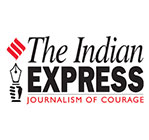
Biggest inequality is identity-based: Kanhaiya Kumar : Media News from 9th Sankalp Global Summit
Dec 9 2017
Stating that identity-based inequality is the biggest inequality in India, former president of the Jawaharlal Nehru University student union Kanhaiya Kumar Friday said that to live, people should have freedom and accessibility to resources.
Kumar was speaking at Sankalp Global Summit, a conference to discuss social change. He added that farmers are the first producers and last consumers in India, and there is a need to share prosperity and resources equally with them. “There is a need for direct market links for farmers to distribute better profits in the supply chain,”
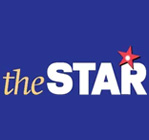
Nairobi to host Africa entrepreneur summit
The third edition of the Sankalp Africa Summit will be held from February 25-26 in Nairobi, global investment and advisory firm, Intellecap has said.
Intellecap said the summit will bring together investors, corporations, development financial institutions and foundations and see the participation of over 800 delegates, reputed leaders, eminent social impact partners.
“The Sankalp forum was established to enable a common action platform to connect, collaborate and celebrate African entrepreneurship. Over the last three years over 1000 people have attended the summit,” it said.
Intellecap said each year Sankalp recognises high potential entrepreneurs as leaders of the Future of Africa.
“This year, 13 enterprises will pitch to the audience at Sankalp to compete for the coveted Sankalp Africa Award,” it said.

Entrepreneurs summit set to attract 800 global leaders to Nairobi
The Sankalp Africa Summit is the fastest growing inclusive development platform for entrepreneurs, investors, innovators, donors and corporations.

Sankalp Africa Summit 2016 set for Nairobi, with the theme- ‘Innovations for the Next 3 Billion’
The Sankalp Africa Summit, considered by some as the fastest growing inclusive development platform for entrepreneurs, investors, innovators, donors and corporations, is set to take place in February 25 – 26, 2016 at the Kenya School of Government.
Sankalp Africa Summit 2016 will be the third edition in East Africa with over 800 delegates – consisting of eminent social impact partners like World Bank Group, USAID, The Lemelson Foundation, Shell Foundation, Kenya Climate Innovation Center, Educate Global Fund and ICCO Cooperation among others – expected to attend.
Over the last three years 1000+ people have attended the summit which has featured partners, enterprises and entrepreneurs from 30+ countries, including 15+ African Nations. The Sankalp Forum was established to enable a common action platform to connect, collaborate and celebrate African entrepreneurship.
Each year Sankalp recognizes high potential entrepreneurs as leaders of the Future of Africa. This year, 13 enterprises will pitch to the audience at Sankalp to compete for the coveted Sankalp Africa Award. Over the last 2 years, Sankalp has recognized 20 enterprises in Africa and facilitated investments worth US $ 200,000 into one enterprise. Globally, Sankalp has supported 500 such businesses and channeled investments worth US$ 120Mn.
Winners of this year’s award will be chosen by a jury featuring leading industry veterans including investment guru Aly Khan Satchu, CEO, Rich Management, Duncan Onyango, Regional Director, Acumen Fund, Manu Chandaria, Chairman, Comcraft, Amrote Abdella, Regional Director,Microsoft4Africa, Jasper Snouk, CFO, Doen Foundation, Eline Blaauboer, Managing Partner, Spark Fund, Mark Carrato, Economic Growth Director, USAID and Courtney Blodgett, Program Officer, Vulcan Inc.
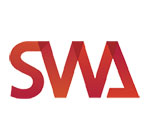
Bank DBS Dorong Kewirausahan Sosial di Indonesia
PT Bank DBS Indonesia bersama dengan DBS Foundation bekerja sama dengan wirausaha sosial dan wirausaha berskala usaha kecil menengah/UKM (small medium enterprise) di Singapura, India, Indonesia, China, Taiwan dan Hong Kong. Untuk kali pertama di Indonesia, sebanyak 17 wirausaha sosial di Indonesia dibina oleh DBS Foundation untuk dipertemukan dalam satu wadah pada Sankalp Southeast Asia Summit 2015.
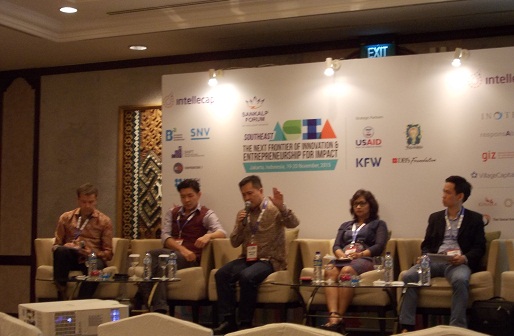
Acara yang digelar oleh Intellecap ini merupakan wadah kolaborasi bagi para pelaku UKM pemula, inovator sosial dan juga investor dari berbagai negara di Asia Tenggara. Dengan tajuk “The Next Frontier of Innovation and Entrepreneurship for Social Impact”, acara ini mengidentifikasi para penggerak berbagai sektor untuk menciptakan bisnis yang berdampak luas dan kemudian mempertemukan dengan calon investor.
Salah satunya adalah CV Sentinel Pratama, sebuah social enterprise yang bergerak di bidang pertanian ini menjawab permasalahan kemiskinan dan rawan pangan di pulau Sumba, Nusa Tenggara Timur. Dengan mengubah lahan kering menjadi lahan sawah irigasi, Sentinel menawarkan pemasangan hydram-pump, pompa yang mampu beroperasi 24 jam tanpa listrik dan bahan bakar bagi penduduk Sumba.
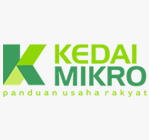
Kedai Mikro interviews Rizki post Sankalp Southeast Asia Summit
Kedai Mikro speaks to Rizki NH Penna, representative of Sankalp Forum in Indonesia post Sankalp Southeast Asia Summit on the opportunities that the Sankalp Indonesia Award finalists have to travel to India for the Global Sankalp Summit 2016.
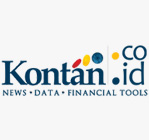
Kontan speaks to Sankalp Indonesia Award Finalists
Pelaku UKM di Indonesia yang menjalankan usaha sambil membawa dampak positif pada lingkungan sekitar terus bermunculan. Ini membuka peluang datangnya investor untuk bisa mendukung kegiatan mereka. Salah satunya lewat Sankalp Forum pekan lalu. UD Bintang Sejahtera, pendaur ulang sampah plastik di Lombok keluar sebagai pemenang di 2015.
Usaha Kecil dan Menengah (UKM) Indonesia menjadi salah satu kontributor GDP terbesar di antara negara tetangga di ASEAN. Ini menjadi potensi yang besar, melihat perkembangan UKM dan masyarakat kelas menengah di Indonesia. Itu sebabnya, dukungan terhadap para pelaku UKM, termasuk pebisnis sosial alias social entrepreneur dibutuhkan agar terus berkembang.
Ini menjadi salah satu perhatian Intellecap, wadah multi-stakeholder global lewat Sankalp Forum yang mendukung para wirausaha sosial termasuk di Indonesia dengan mengusung program Sankalp Indonesia Awards pekan lalu. Pemenang Sankalp Indonesia Awards tahun 2015 adalah UD Bintang Sejahtera, manajemen bank sampah di Lombok. Bintang Sejahtera memberi solusi pengelolaan sampah untuk lingkungan berkelanjutan dan pembangunan ekonomi masyarakat sekitar Lombok.
Febriarti Khairunnisa, si pemilik usaha, mendaur ulang limbah plastik sambil menciptakan lapangan kerja. Masyarakat sekitar diberdayakan untuk memilah sampah plastik dari para pengepul plastik. Sebagai pem
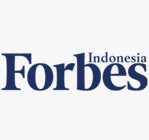
Forbes interviews Vineet on the sidelines of Sankalp Southeast Asia Summit
The Aavishkaar social investing firm was founded by Vineet Rai in 2001 in India. It is India’s biggest firm, by fund size, for this type of investing, which looks for investments that will have a social impact along with a financial return. Since its founding, Vineet and his team have made 46 investments, all in India, through four funds and have about $155 million under management in the country. It has already done thirteen exits and six partial exits.
But Aavishkaar’s recently launched fifth fund, the Aavishkaar Frontier Fund (AFF), is its first fund to focus outside India. The AFF will invest in firms in South and Southeast Asia, including countries such as Bangladesh, Indonesia, Pakistan and Sri Lanka. Of these countries, Indonesia is clearly the lead target market. Vineet hopes that AFF will invest about 35% of its $45 million in funds into Indonesia. The AFF states that it is the first venture firm from India to invest in Indonesian startups, with a special focus on impact investing.
“I am very excited about Indonesia because like India, Indonesia is also a country with high density, low income population where entrepreneurial activity exists. Indonesia today is what India was in 2007,” says Vineet, 43. “While Pakistan, Bangladesh and Sri Lanka share the border with India, Indonesia’s size will give it a competitive advantage.” Just last month, the AFF made its first investment, into Indonesian seafood company Bali Seafood International, and its next investment in Indonesia is already in the pipeline and expected to close in the next six months. Vineet also expects the AFF to close two other investments in Sri Lanka and Bangladesh in the next two months.
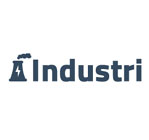
5 UKM Indonesia Bakal Ikuti Sankalp Global Summit di India
Bisnis.com, JAKARTA – Sebanyak lima usaha kecil dan menengah asal Indonesia akan mengikuti Sankalp Global Summit di India pada April 2016. Sebelumnya, mereka mendapatkan Sankalp Indonesia Award 2015 dari Intellecap, perusahaan asal India ini bergerak dalam investment banking, consulting, dan servis riset untuk klien dari berbagai belahan dunia.
Kelima UKM tersebut akan melakukan showcase bersama dengan UKM pilihan lainnya dari kawasan Afrika, Asia Tenggara dan India di depan para investor. Diharapkan dari kegiatan tersebut tiap UKM berkesempatan untuk mendaparkan dukungan finansial dan pembangunan kapasitas, serta akses jaringan global.
Representatif Intellecap untuk Southeast Asia Rizki Nugraha Hamim Penna memaparkan UKM-UKM yang terpilih tersebut berhasil menyisihkan peserta lainnya yang telah mendaftar kompetisi yang pertama kali diselenggarakan di Indonesia ini.
“Kami memilih UKM yang bisnisnya bergerak untuk menyelesaikan permasalah sosial, misalnya di bidang pertanian, air dan sanitasi, serta bidang lainnya yang relevan,” paparnya, Kamis (3/12/2015).
Rizki menambahkan, Intellecap berharap dengan adanya pertemuan antar UKM yang berdampak positif di negaranya masing-masing bisa saling berkolaborasi atau berkesempatan untuk menerapkan bisnisnya di negara lain.
Sementara itu, Juara I Sankalp Indonesia Awards 2015 adalah Bintang Sejahtera, manajemen bank sampah di Lombok dan berhak mendapatkan hadiah sebesar US$10.000. Adapun, finalis lainnya adalah Nazava, UKM Indonesia yang menyediakan filter air yang terjangkau, serta Clean Power Indonesia, Torajamelo, dan Vasham.
Adapun, Sankalp Forum merupakan sebuah inisiasi dari Intellecap, bertujuan untuk mempengaruhi perkambangan inklusif global melalui kerja samanya dengan para wirausahawan, investor, dan bisnis inklusif di pasar berkembang. Sejak 2009, Sankalp forum sudah mempertemukan lebih dari 400 bisnis kepada investor dan penyandang dana, dan membangun komunitas beranggotakan lebih dari 23,000 jaringan.
Reports & Policies
Our Impact Map

Sign up for our newsletter
© Copyright 2018 Intellecap Advisory Services Pvt. Ltd. - All Rights Reserved




